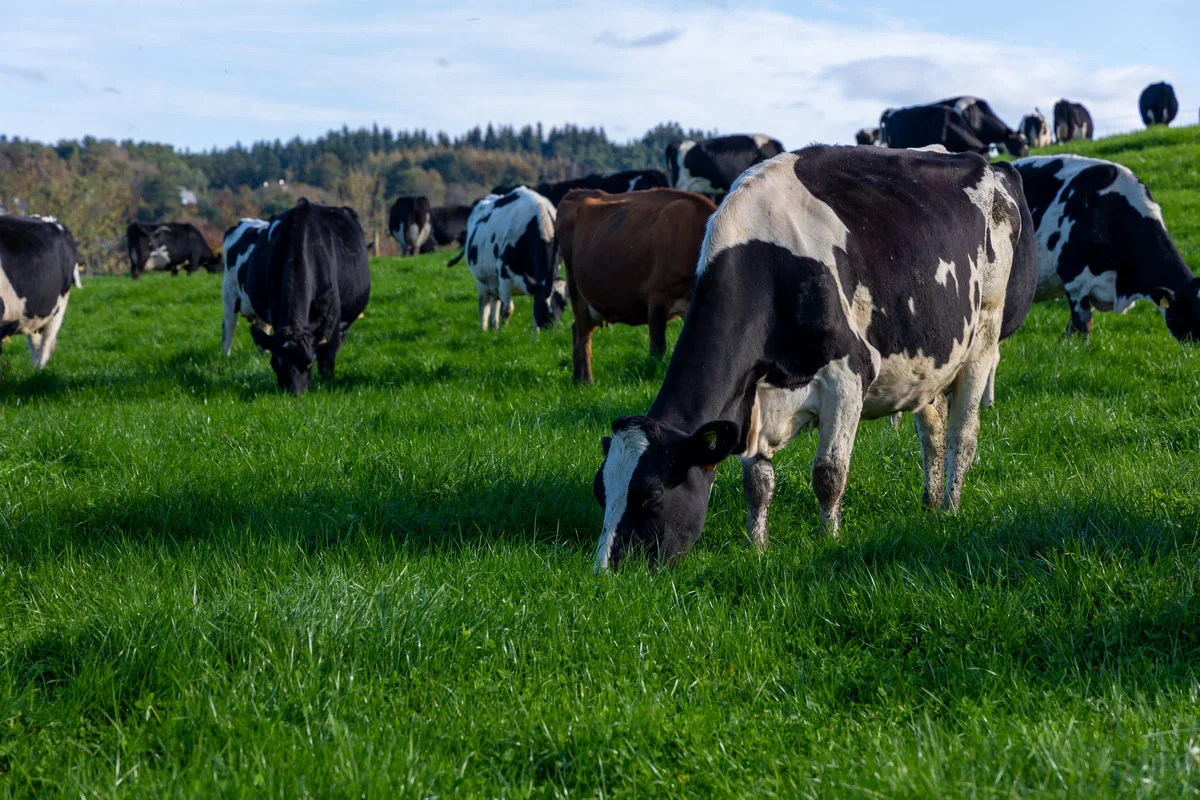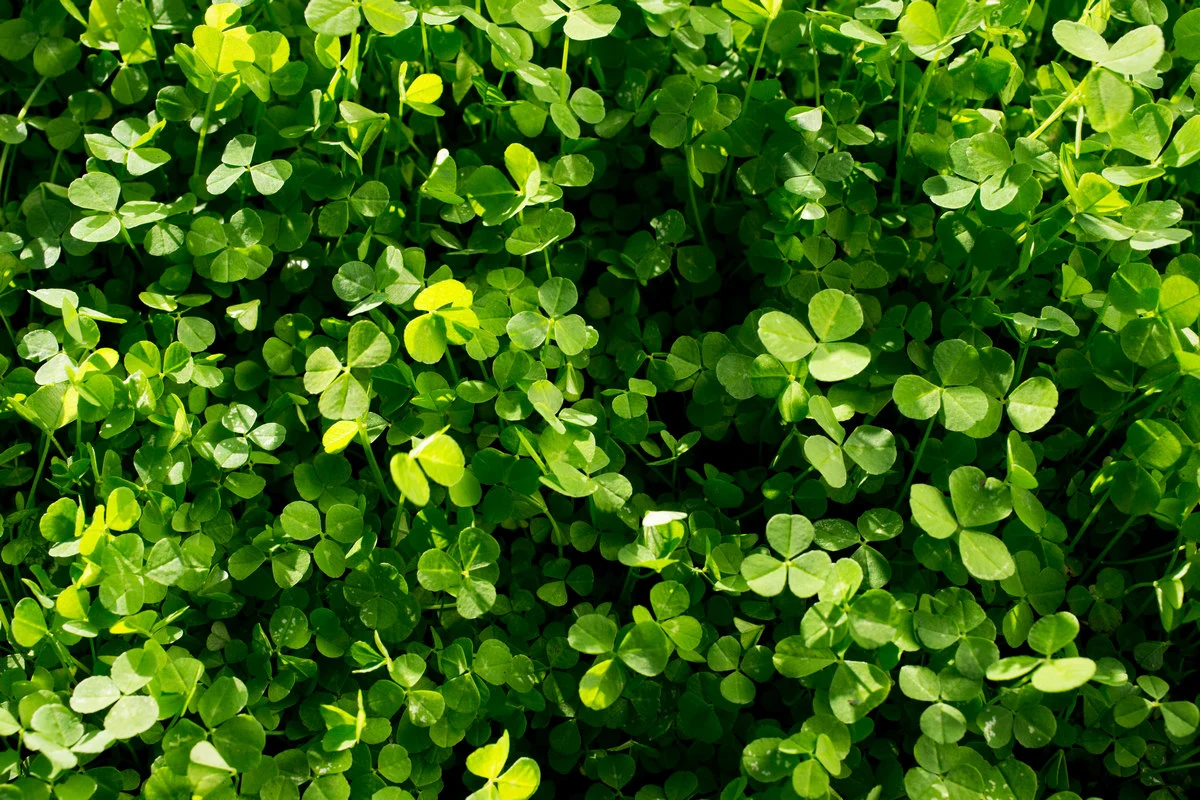2023 brought many challenges for Irish farmers, who faced unpredictable weather patterns, high farm costs, and fluctuating milk prices.
Germinal Technical Director Dr Mary McEvoy and forage expert Diarmuid Murphy reflect on last year’s challenges and what they mean for grassland farmers in 2024.
Weather hinders reseeding efforts
In 2023, farmers encountered a range of weather conditions, including dry and cold spells, as well as persistent rainfall.
February was notably dry, with farmers progressing ahead of the normal workload. Then, there was a shift to wet conditions, hindering work until late April or early May when weather improved.
May and June stood out as being unusually dry but were followed by the wettest July on record, with persistent rain continuing throughout the rest of 2023.
This presented substantial challenges for reseeding, explains Diarmuid:
“Even the most dedicated reseeding farmers couldn't carve out the opportunity to do so this autumn. Some fields were even cultivated in the hope of getting back into sow, but the weather didn't facilitate.”
Dairy farming challenges and optimistic outlook
For dairy farmers, 2023 brought a dual challenge of high farm costs and a significantly lower milk price compared to 2022, leading to constrained cash flow.

However, the future looks more optimistic as the milk price is expected to improve in 2024. Irish milk prices are anticipated to increase by 10%.
The anticipation of a favourable milk price in the coming year offers a glimmer of hope for dairy farmers, providing them with the financial means to navigate challenges and invest in reseeding older pasture.
Positive impacts for cattle markets
In 2023, there was a 4% rise in prices for finished cattle. Weanling prices experienced a 7% increase, and prices for store cattle rose by 5% compared to the levels in 2022. Costs on farms remained relatively high and somewhat similar to 2022.
Teagasc’s 2024 projection anticipates a 3% increase in prices for both young cattle and finished cattle. Therefore, cattle farmers could be more open to reseeding earlier in 2024 if conditions are good in spring.
Reducing chemical nitrogen usage
With the help of clovers, chemical nitrogen usage was reduced by 31% in 2023 when compared to the baseline year of 2018.
Specifically, the application of chemical nitrogen amounted to 280,569 tonnes in 2023, significantly below the targeted threshold set by the Climate Action Plan, which aims to limit the usage to less than 300,000 tonnes by 2030.
The significant reduction in chemical nitrogen usage, especially when compared to the 2018 figure of over 408,000 tonnes, highlights the agricultural sector's ability to tackle environmental challenges and align with sustainability objectives.

New derogation rules and impact on grassland farmers
The new derogation rules for grassland farmers impose stricter limits on organic nitrogen levels, reducing the permissible limit from 250 to 220 kg N per hectare.
This cut is anticipated to have consequences for the stocking rate (SR) of many farms.
Farmers will need to adapt to these regulations, emphasising the importance of sustainable and responsible grassland management practices.
As a natural source of nitrogen, clover has become integral in Irish grassland farming and we believe wider adoption can offset the reduced usage of artificial nitrogen.
Recognition of sustainable farming practices
The farming community celebrated the inaugural winners of the Germinal Responsible Grassland Manager of the Year, Niall Moloney, at the National Dairy Awards and the Germinal Sustainable Pasture Farmer of the Year, Michael Doran, at the 2023 Better Farming Awards.
These awards highlight Germinal’s commitment to celebrating and encouraging sustainable farming champions, who can offer inspiration and motivation to other farmers dealing with unique challenges.
Looking ahead to 2024
With lessons learned and a resilient spirit, the Irish farming industry continues to evolve with challenging conditions, actively shaping a more sustainable and still productive future.
Positive indicators, an expected increase in the base milk price, and potentially input costs, along with the hope for more normal weather could present opportunities for farmers to recover from the setbacks of last year.
However, economic conditions have been uncertain in recent years and there are no guarantees that circumstances won’t cause input costs to rise.
By growing hiqh-quality, homegrown grass and forage, farmers can mitigate input costs by cutting back on bought-in feed and establishing more clover to minimise artificial nitrogen dependency usage.
Germinal’s climate smart solutions are productive and sustainable, helping farmers comply with environmental responsibilities.
Ask Germinal about climate smart reseeding
If you need advice on reseeding in 2024, ask our grass and forage specialists today.
